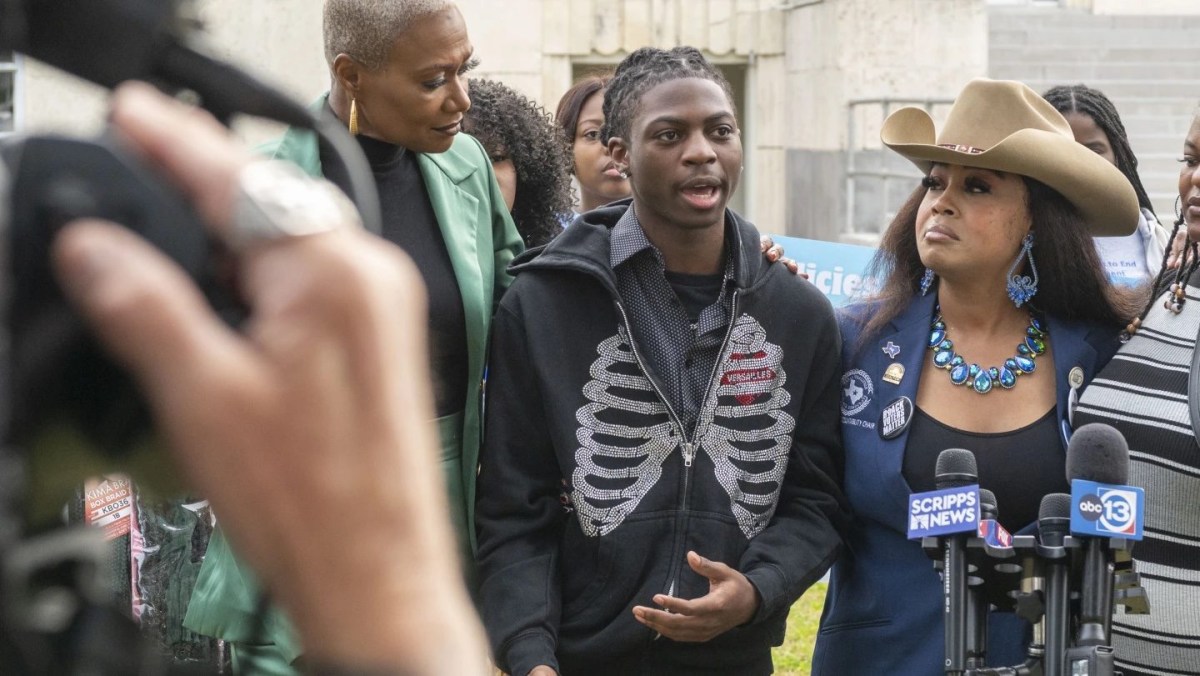|
Listen to this article here
Getting your Trinity Audio player ready...
|
A Texas judge has ruled against the family of a Mont Belvieu teenager, who faced suspension due to the length of his dreadlocks. Darryl George and his family took the school district to court on the allegation that his suspension violates the CROWN Act.
The school district claimed that it wasn’t a matter of discrimination based on texture, but rather length.
The district maintains that George’s hair length violates the dress code policy. Despite typically wearing his locs tied up, the district argued if they were let down they would fall past shoulder length.
Judge rules law doesn’t violate CROWN ACT
District Judge Chap Cain III ruled that the district’s discipline of George over his hair length does not violate the CROWN Act.
Following the court’s decision, the family was not available for immediate comment.
George was first suspended on August 31, 2023, the day before the Texas CROWN Act went into effect. At the time, George was 17 and drifting between at-home and in-school suspension. The now 18-year-old has yet to return to regular classes due to the ongoing dispute.
CROWN stands for Creating a Respectful and Open World for Natural Hair. It was signed into law by Gov. Abbott in May 2023, officially going into effect last September. The act prohibits discrimination based on hair texture or protective styles, like braids and locs.
Darresha George told CNN that her son was put on in-school suspension for wearing his locs in a ponytail. The district claims that George’s suspension doesn’t violate the CROWN Act because it’s a matter of length, not texture or style.
Related Stories
District’s Response
Barbers Hills Independent School District prohibits male students from having hair that extends below the collar line. However, some students are exempt if it correlates to their religious beliefs. David Bloom, a spokesman for the schools, informed CNN that George cannot return to regular classes unless he cuts his hair.
Greg Poole, the district’s Superintendent, has been adamant about the necessity of the dress code. He went as far as taking out a full-page advertisement in the Houston Chronicle to get his statement out to the public.
“The problem with relaxing standards without any regard to academic implication is the precedent it creates. Our military academies at West Point, Annapolis and Colorado Springs maintain a rigorous expectation of dress. They realize being an American requires conformity with the positive benefit of unity, and being a part of something bigger than yourself,” Poole wrote.
History of the CROWN Act
Twenty-three states have passed similar anti-discrimination legislation. The law protects people from hairstyle persecution in school and the workforce.
First proposed by U.S. Representative Bonnie Watson-Coleman in 2021, the federal version of the bill died in the Senate. Despite being unsuccessful so far on a national scale, the bill has garnered support from nearly 100 organizations, including the NAACP and ACLU.
There has been a push to reintroduce the bill on the national level but nothing has come to fruition. Instead, nearly half of states have passed copycat laws.
Another 21 of the remaining 27 states have filed legislation that would ensure protection from hair-based discrimination.
Despite significant progress, hair-based discrimination continues to persist. A 2023 workplace study found that Black women’s hair is 2.5 times more likely to be perceived as unprofessional. It also found that Black women with tighter curl patterns are twice as likely to experience microaggressions in the workplace.


